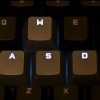performance on identical hardware
-
Topics
-
DommoMotto ·
Posted in Troubleshooting0 -
KapteijnK ·
Posted in Troubleshooting5 -
0
-
busby_bee_boy ·
Posted in Graphics Cards12 -
AutoCorrectBotLeL ·
Posted in Troubleshooting2 -
Leahh ·
Posted in Servers, NAS, and Home Lab1 -
1
-
0
-
johnt ·
Posted in Servers, NAS, and Home Lab2 -
NukoTi ·
Posted in Troubleshooting2
-
-
play_circle_filled

Latest From Linus Tech Tips:
Why it Was Almost Impossible to Put a Computer in Space
-
play_circle_filled

Latest From ShortCircuit:
I’m kind of an iPad hater, but this is MAGICAL. - iPad Pro M4













Create an account or sign in to comment
You need to be a member in order to leave a comment
Create an account
Sign up for a new account in our community. It's easy!
Register a new accountSign in
Already have an account? Sign in here.
Sign In Now